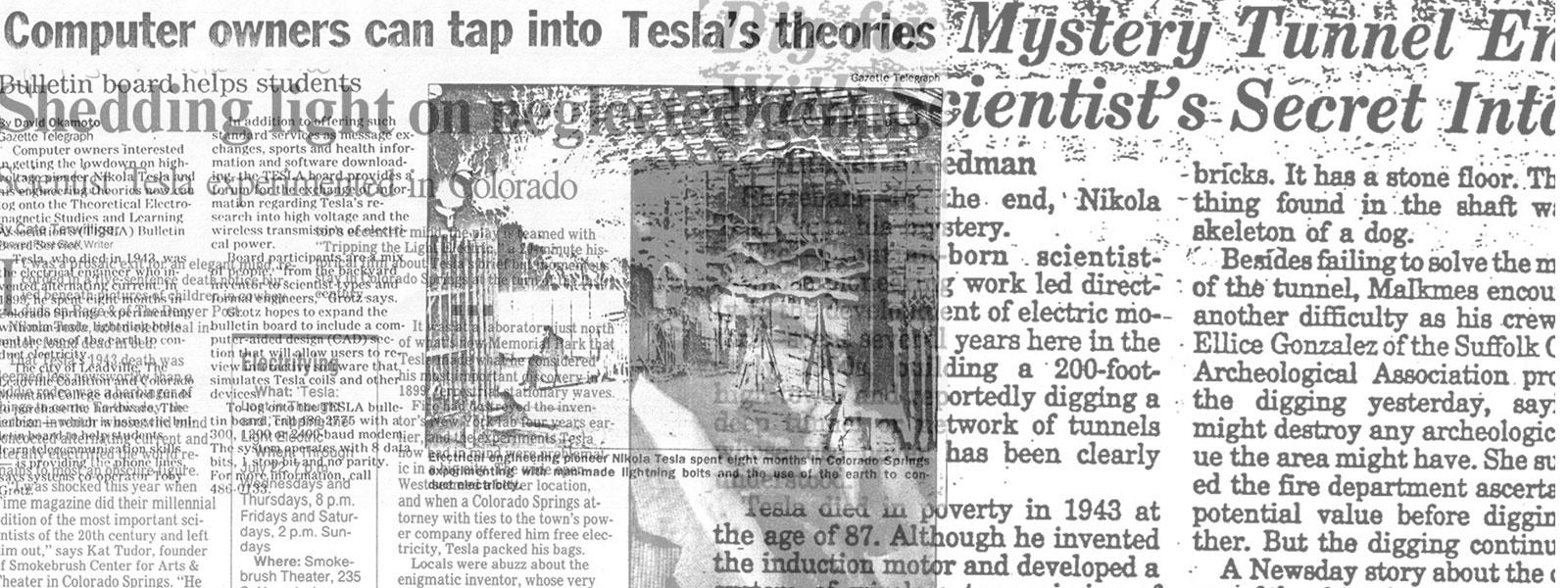
Nikola Tesla Articles
Tesla and His Critics
We have received from Mr. Nikola Tesla, with a request that it be printed in our columns, a letter containing a personal attack on the editor of one of our electrical contemporaries. Owing to the personalities contained, which form the greater part of the letter, we regret that our editorial policy will not permit us to print the communication in full, and we will therefore only notice such parts as may be considered to have a journalistic or public bearing.
Mr. Tesla accuses our contemporary of having done him an injury by reprinting in its columns a paper read by him before a medical society; and of having cast a shadow on his honor and attacked his honesty in an editorial comment apropos of the said paper. Aside from their personal bearing, these charges involve the right of a journal to reprint matter that has passed out of the hands of a writer and become, through publication, the property of the world at large; and the right to criticise, as a professional journal, public announcements of scientific discoveries pertaining to the profession which it represents.
As to the first charge, our contemporary in answer prints satisfactory evidence that the republication in its columns of the paper in question was authorized by the chairman of the medical society before which it was read. Even in the absence of such authorization, however, it is difficult to see what justification there can be for Mr. Tesla's statement: "By publishing in your columns of Nov. 17 my recent contribution to the Electro-Therapeutic Society, you have finally succeeded * * * in causing me a serious injury." The paper was presented before a national professional body, and, therefore, it is to be presumed, was maturely composed by its author with a knowledge that such presentation constituted publication to the world, and laid the statements contained open for comment or criticism from any source - not even excluding an electrical journal.
As to the second charge, a careful reading of the editorial upon which it is based leaves only the impression that the writer was actuated by a kindly motive in reminding Mr. Tesla of the many unfilled promises he has made to the public in recent years - promises of light without heat, a revolution by means of his "oscillator" in the generation of electrical energy, the transmission of electricity without wires, the destruction of fleets by means of an application of the coherer - to which list might have been added the expulsion of microbes by means of an electrification of the body and other announcements which, with those noted, have earned for Mr. Tesla the popular title of "The Wizard." Surely this constituted a legitimate subject for editorial comment by an electrical journal, and the manner in which the warning was conveyed - that Tesla had arrived at the stage when fulfillment of some of the many promises made had become vitally necessary to his reputation - was not such as to call for a violent attack on his critic.
The truth plainly stated is, that for several years Mr. Tesla has only escaped similar criticism in professional and scientific journals on account of the high esteem in which he is held personally, and through recollection of the magnificent boon he bestowed on the world by the invention early in his career of the polyphased system. The manner in which he has permitted himself to be exploited by the sensational newspaper press has been a source of pain to his friends, and has largely alienated from him the sympathy of the electrical profession. Moreover, his periodical promise of being on the point of accomplishing some wonder that would revolutionize electrical science has had an untoward effect on the electrical industry, for among laymen it has tended to produce the belief that at any moment one of Tesla's great discoveries may materialize and destroy all present investments.